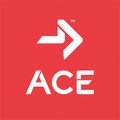Recently, the World Health Organization (WHO) released a new guideline on non-sugar sweeteners (NSS).
This type of statement often causes concern or confusion for clients and class participants and leaves health coaches and exercise professionals answering tough questions. It’s important to be prepared for these conversations and have access to the information and resources you need to respond appropriately. It also means that you should be prepared to act within your scope of practice when addressing client questions and concerns.
Before diving into a Q&A covering potential client questions, let’s first explore what this statement actually means to you as a health coach or exercise professional. This is a great example of why you should encourage your clients to avoid overreacting to a single news story or piece of research. A lot of the chatter on social media since the WHO released this statement has been about the need to completely avoid eating any products with NSS if you want to maintain good overall health, but is that really the case? Is it true that your clients can never drink a diet soda again if they want to be fit or healthy? Of course not.
The bottom line is that this statement shouldn’t change anything about how you coach your clients regarding their nutrition. Keeping sugar intake within reasonable limits and avoiding eating too many processed foods (which is where most NSS are found) should already be a part of the advice you provide. Too many people take an all-or-nothing approach to nutrition—always eat this, never eat that—which all ACE Certified Professionals know rarely works in the real world. So, your role in these situations is to serve as a voice of reason in helping your clients interpret the science and make the best choices they can as often as they can.
We know that some of your clients may be turning to you for advice and have questions after hearing this in the news. To best equip you to answer these questions, ACE has compiled some frequently asked questions and answers to help you communicate these new guidelines.
Question: Why does the WHO suggest not using non-sugar sweeteners as a means for achieving weight control or reducing the risk of noncommunicable diseases?
Answer: The new guideline recommends against the use of NSS to control body weight or to reduce the risk of chronic diseases such as diabetes, heart disease and cancer. This recommendation is based on findings of a systematic review of the available evidence, which suggests that adults and children do not confer any long-term benefit in reducing body fat with the use of NSS. It is also important to note that this new guideline has been given a “conditional” status because of the complicated patterns of NSS use and other unknown behavioral characteristics of the individuals in the study.
In other words, the meta-analysis referenced in forming the WHO recommendation demonstrates a correlation among NSS use, chronic disease risk and weight control, but does not explain what directly caused any changes in the participants’ body weight or disease risk. For example, we don’t know anything about the eating patterns or physical-activity levels of the participants in the various studies reviewed.
This recommendation should be viewed in the context of other WHO guidelines to decrease the intake of free sugars (any sugar added to food or drink) and other guidance promoting a healthy diet, such as guidelines on macronutrient, sodium and potassium consumption.
Question: What are non-sugar sweeteners?
Answer: NSS are substances that are both synthetic and naturally occurring or modified non-nutritive sweeteners that are not classified as sugars and are used to sweeten foods and beverages while adding few or no calories. Stated more simply, NSS are the sugar substitutes used to turn foods or beverages into low-calorie or zero-calorie options.
Some of the most common NSS include acesulfame K, aspartame, advantame, cyclamates, neotame, saccharin, sucralose, Luo Han Guo fruit extracts, stevia and stevia derivatives (Table 1). These sugar alternatives are commonly used because they are many times sweeter than sugar. NSS can be found in foods and drinks that are labeled as “diet” or “sugar-free,” and are also sold in packets or other containers directly to consumers to be used in place of adding sugar to foods and beverages.
The following are some common ways that food and beverage manufacturers will refer to NSS on packaging, which might help your clients identify these ingredients:
- High-intensity sweeteners
- Low-or no-calorie sweeteners
- Nonnutritive sweeteners
- Non-caloric sweeteners
- Sugar substitutes
- Artificial sweeteners
Question: Where can I find more information about NSS?
Answer: You can learn more about NSS, NSS approval and research on NSS using the following links:
Question: What should I do if I want to reduce my sugar intake and improve my health?
Answer: While it is not within a health coach’s or exercise professional’s scope of practice to create specific meal plans for clients, you can share with them general recommendations.
In the context of achieving and maintaining a healthy diet, the WHO advises that you limit your consumption of free sugars (sugars added to foods and drinks often found in highly processed foods and beverages) and instead swap for sources of naturally occurring sweetness, such as fruits and minimally processed unsweetened foods and beverages. Making this change will help to improve overall dietary quality.
In addition, The Dietary Guidelines for Americans suggest making every bite count by making nutrient-dense choices one day at a time and one meal at a time; following a healthy dietary pattern at every life stage; customizing and enjoying nutrient-dense food and beverage choices to reflect personal preferences, cultural traditions and budgetary considerations; focusing on meeting food group needs with nutrient-dense foods and beverages and to stay within calorie limits; limiting foods and beverages higher in added sugars, saturated fat and sodium; and limiting alcoholic beverages. Added sugars should make up less than 10% of daily calories. Common beverage sources of added sugars include regular soda, sports drinks, fruit drinks, sweetened waters, energy drinks, coffee and tea (Figure 1).
Figure 1
Common Sources of Added Sugars
Reprinted from U.S. Department of Agriculture (2020). 2020-2025 Dietary Guidelines for Americans (9th ed.). www.dietaryguidelines.gov
Final Thoughts
Because everyone is unique, a healthy choice for one client might mean substituting a sugary soda with diet soda, yet for another client, it might mean replacing a sugary dessert with a piece of fresh fruit. When supporting clients as they adopt healthier nutrition choices, your ability to collaborate with them as they decide on the best approach will likely determine how successful they are in making these choices.
Navigating interactions with clients when discussing guidelines can often be a challenging task. Having reliable information and resources at your disposal can help steer these conversations in a positive direction while staying within your scope of practice. This list of potential questions is not exhaustive, but it will at least point you in the right direction.
An important thing to remember with this new conditional guideline is that if you are already supporting clients in working toward a healthy dietary pattern, there is no need to change that approach. Your clients should continue to look for ways to limit added sugars, consume more nutrient-dense foods and eat more naturally occurring sugars such as those found in fruit. This new recommendation fits within the guidelines for following a healthy dietary pattern.




 by
by 






 by
by